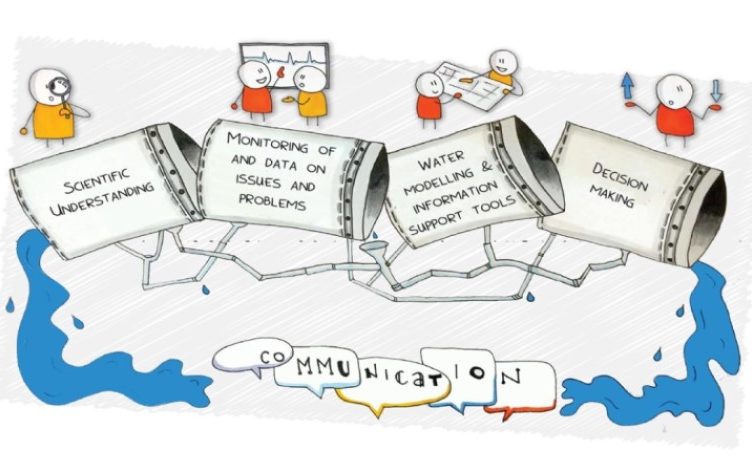
05/12/2024
Event Summary: Overview of water quality modelling projects from the Queensland Water Modelling Network with Callym Dunleavy
Read more
On Thursday 17 October we held another lunchtime RDI Showcase to highlight steps taken by a collaborative team to enable Githabul People to Heal Country.
We were joined by Melissa Chalmers (Cultural Heritage Coordinator and proud Githabul woman), Shoshanna Grounds (QLD Practice Leader, Heritage and Communities at NGH) and Emma McCall (Engineer at BMT) to hear their experiences of and lessons from working together on this project to Heal Country in the waterway catchments of Githabul Country near Warwick.
It was hardly surprising we received such strong interest in this topic with over 40 participants joining us as Piet chatted with the team.
The conversation kicked off with a heartfelt conversation with Melissa as she shared how important water is for her Githabul people.
For Aboriginal people, water is sacred. Water is life.
This RDI project was an opportunity for them to have a say and get their aspirations heard for waterway catchments in the area. One of which is the desire to develop a River Ranger programme so they can get back out on country and look after their rivers themselves; to give them that power to get back out there and do that.
One message that came through very clearly from Melissa was the understanding her people have of the importance of interconnectedness. She emphasised that the health of water affects the health of people and the health of country. If one’s out of balance, then it’s all out of balance.


Shoshanna then shared how NGH tapped into research and the traditional ecological values of the Githabul Country waterways to inform project outcomes. They also partnered with Water Rangers in the NSW Border Ranges.
Githabul Country in Qld retains the headwaters to five very significant river systems across the landscape. A number of them travel South into the NSW area.
The partnerships with the NSW Water Rangers enabled the team to take some of the knowledge from NSW and adapt it for the Queensland space. Applying this knowledge can empower the Githabul people in the Queensland to manage country and manage water leading to successes downstream in the NSW space.
She shared that the themes that were identified through this project were an understanding of Githabul people’s duty to look after country – to restore, repair, and rehabilitate aspects of country.
Melissa reiterated the importance of the fact that Queensland has the head of the Condamine River by highlighting that if the water is not healthy here, we’re passing that downstream to other people, to other mobs. And back when her ancestors would have been caring for this country and looking after this country, that would never have happened. They always thought about the people down the river too, not just their own country.
Melissa also expressed the importance of their duty of care to care for country, as traditional owners for future generations – our grandchildren, our great grandchildren.

Through the project the team asked the question –
“How can a technical water modelling framework support the Githabul people’s aspirations to restore, repair, and rehabilitate the health of country?”
The modeling framework needed to accommodate the interconnectedness of the features of health to see the health of Country persist.
Our online conversation then introduced Emma McCall who was acknowledged by the team as being instrumental in bringing the water modelling science aspect to the project by translating what Shoshanna and Melissa were saying into the water modelling space.
Emma explained how her conversations really taught her that everything is interconnected and you can’t just put a little box around it as we like to do when we’re modelling and constrain the problem to an area. She found that opening up, listening and understanding how everything is interconnected and broadening understanding of the whole system played a really important role in the success of the collaboration.
In this exploratory first stage of this QWMN RDI project the team discussed:
Such a package would help the Githabul people to compare and understand what’s happening now, what it used to be like and where they would like to go and how can they achieve those things when there may not be the ability to restore things exactly as they were before, as that might just not be achievable.
It’s also important to note that the team built a framework for indigenous cultural intellectual property at the beginning of the project to make sure that there was a foundation for those discussions.
We wrapped up the discussion with a summary of the key ingredients that enabled this collaboration with Githabul people:
Thank you again to Melissa, Shoshanna and Emma for an enriching conversation exploring the relationship the First Nations people have with their Country and how modern science can facilitate their aspirations to care for Country.
To watch the recording of the online showcase session, go here.
To watch the project team share a brief summary of the Project go here.
